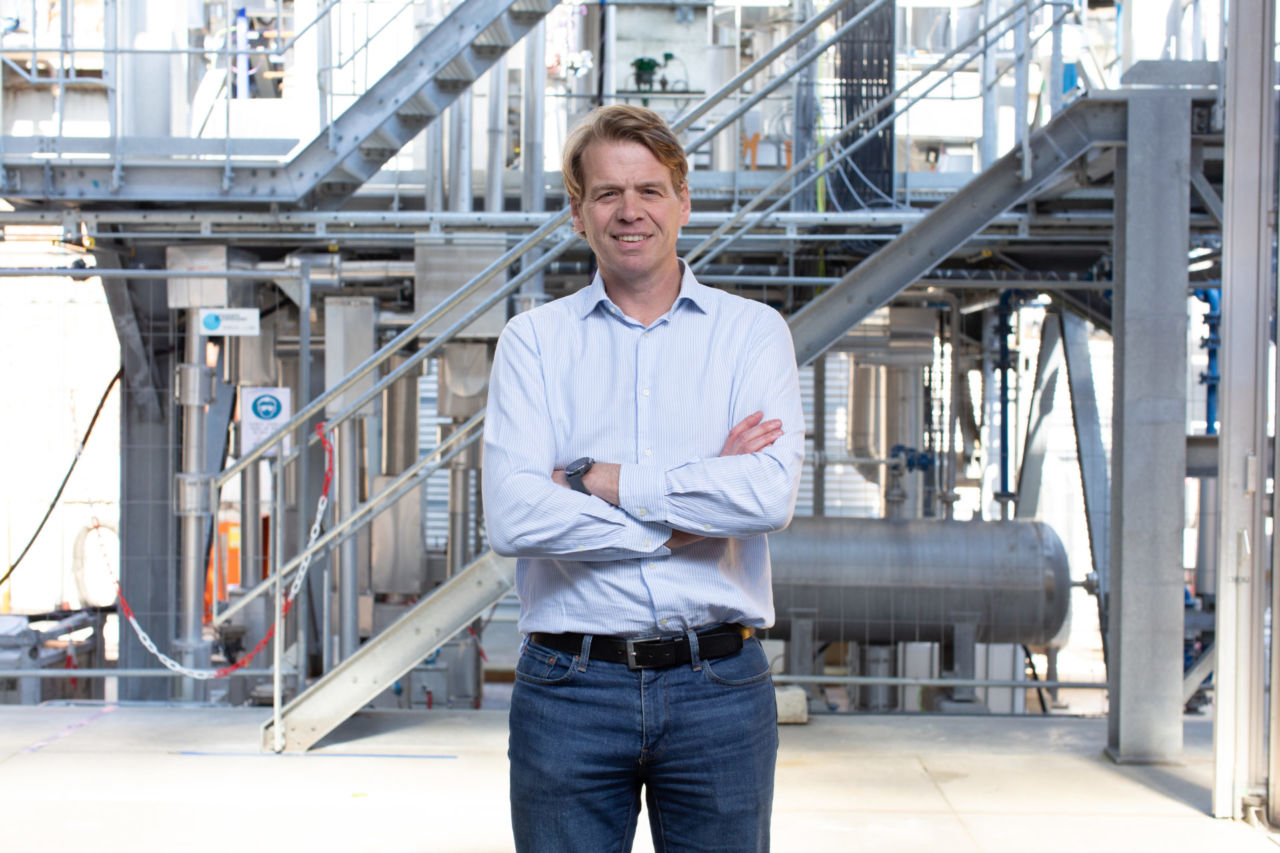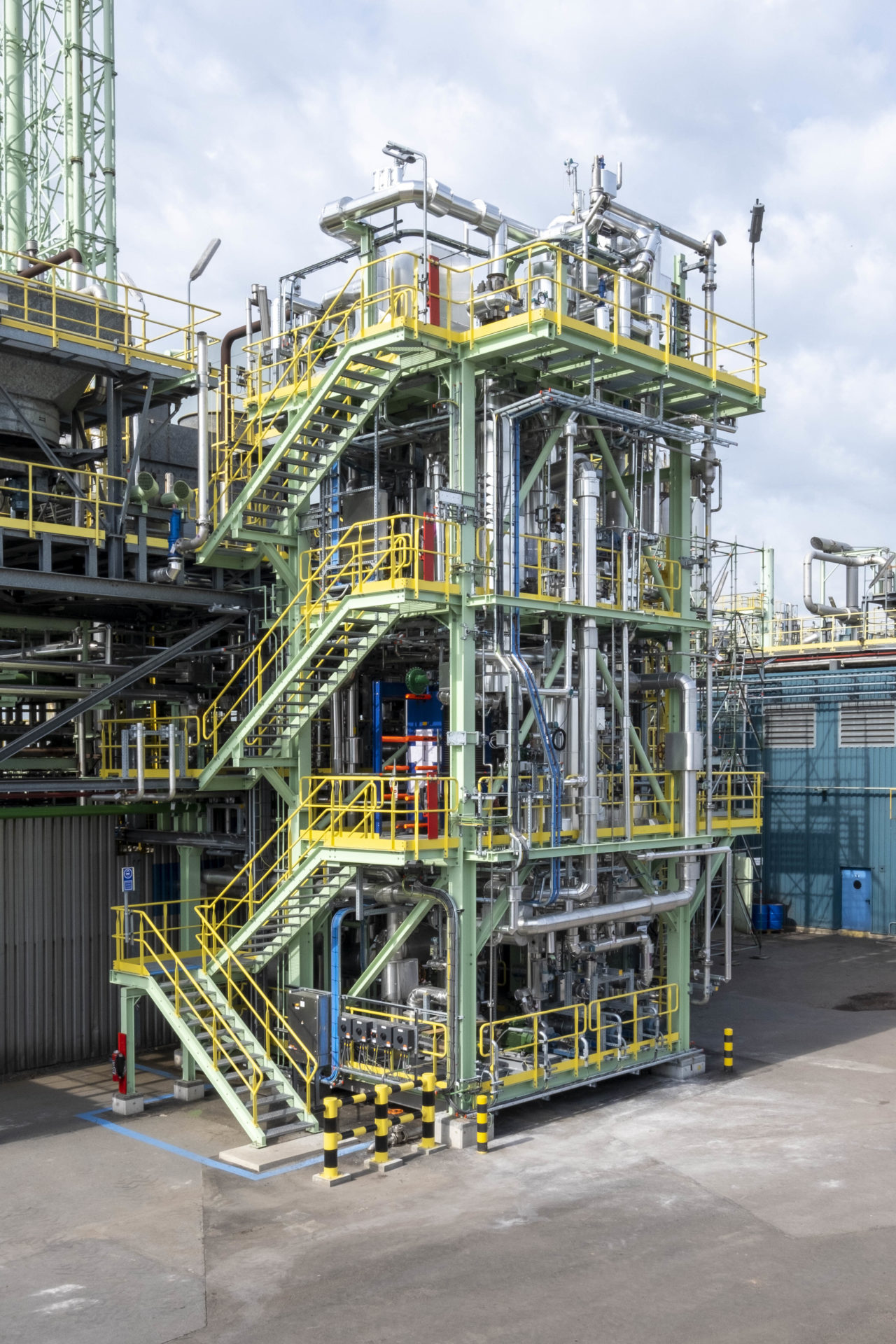In conversation with: Christian Heeren, Qpinch
Christian Heeren, Chief Evangelist at Qpinch, shares more about the company’s innovations, including the conversion of waste heat to carbon-neutral energy, and discusses how global policies will shape the industry going forward.
Thank you for joining us! To start off, please tell us a little more about Qpinch and what you do.
Qpinch was founded in 2011 in the heart of the Petrochemical cluster of Antwerp, Belgium. The main objective of Qpinch is to help our customers to dramatically increase energy efficiency and reduce emissions.
Our technology allows to convert a part of the giant pool of waste heat available on site in carbon neutral industrial heat (e.g. steam etc), while overcoming the challenges of conventional heat pump technology:
- Large scalable: the technology is applicable when you have just a couple of MW of waste heat to tens of MW
- High temperature jump: depending on the provided waste heat, we can make jumps between 40dgC – 100dgC in one step
- No net operational costs: as we use a chemical process, we don’t need compression technology that requires a lot of electricity.
- Can cope with process fluctuations easily: because a chemical reaction is used to capture the energy of the waste heat, process fluctuations are not a problem.
We provide a solution to our customers to face today’s challenges of high energy prices and to achieve its climate objectives with sustainable financials. We support them to reduce their fossil fuels requirements and and emissions. Additionally, when moving to renewable energy sources, their process will already be optimized from an energy efficiency perspective.

What does a typical day in your role look like? What are the biggest challenges of your role?
Due to the current geopolitical context, we are faced with an urgency to move away from fossil fuels and to accelerate the energy transition. After years of development with our partners, the technology is ready for large commercial roll out. In this context we receive a lot of interest: our everyday challenge is to keep focus and identify those partners with whom we can realize our mutual objective, which is realizing large improvements in industrial energy efficiency and decarbonization.
What are some key concerns for refiners when it comes to the current state of the refining and petrochemical industry?
The good news is that the industry knows how to cope with the 2050 climate objective of zero emissions. This will be realized by a combination of (1) energy efficiency projects, (2) energy substitution and (3) CCU/S. On the other hand, energy substitution technologies – such as blue hydrogen, green electricity and CCU/S – will come at a huge financial cost and will take another 5 to 10 years to reach maturity.
Energy efficiency is available now and can immediately be implemented. In the end, reducing the total amount of used energy is what should always be done first.
I understand that Qpinch specializes in the transformation of waste heat into carbon-neutral industrial energy. Could you tell us a little more about this?
Correct: the idea of upgrading waste heat to useful industrial heat is common sense, and not new as such. Our challenge was to move away from conventional methodologies which consumes large amounts of electricity, a very valuable energy source. That’s why we developed a chemical process that is able to convert industrial waste heat (e.g. lps, vapors, hot water, condensates, etc.) into industrial heat (e.g. steam, hot vapours, hot liquids, etc.). The waste heat is the driving force of our technology and is partially consumed to trigger the chemical process that makes the temperature jump.
Contrary to classic compression technology, which is consuming significant amounts of valuable electricity. Once the installation is operational, it converts the customer’s available waste heat into steam at almost no operational cost, saving fossil fuel cost and reducing its emission. A winning- and necessary concept! One of our customers mentioned: “I put steel in the ground and I get free steam”.
In this age of the energy transition, what is the significance of such technology for the refining and petrochemicals industry?
It’s crucial, as oil refinery & petrochemicals will remain the key energy and industrial intermediate supplier (e.g. plastics, etc.) for coming decades. The industry must be able to fulfill this role while coping with the climate objectives with sustainable financials. Energy efficiency, and Qpinch specifically, can significantly contribute to this objective and even increase the operational margin, strengthening the industry competitiveness. The early movers will have that competitive advantage.

Are there any case studies or new technologies you might be able to share with us?
We have our first multi-MW installations operational in the port of Antwerp: at Borealis, at Kuraray and one on our own site. The capacity of all the installations ranges between 1,3 – 2,0MW steam production, upgrading between 3-5 MWth of waste heat. Output temperatures range between 145-185dgC. Currently we are designing the next generation installations up to 12MW output capacity. Start of construction is expected by the end of 2023 and start up in 2025.
The downstream oil and gas is currently navigating the post-pandemic era – in your opinion, what should operators prioritize to survive and thrive in these times?
In my opinion, those who can cope with the climate objectives, have the lowest cost structure and highest margin (product slate), will lead the industry in coming decades. Nobody can turn away from these objectives.
What are some changes in trends that you have observed, in the petrochemicals industry?
When we founded our company, the technology, advanced energy efficiency and decarbonization were perceived as interesting ‘things or developments’. Today, our customers perceive it as a necessity. It’s our challenge to realize this with our customers.
In your opinion, what is/are the main driver(s) influencing this shift in the oil and gas industry, and where do you think the industry will be in the near future?
The drivers are twofold:
First, the consumer needs to demand for these sustainable products and willing to pay the necessary premium.
Secondly, it is key that all governments around the globe implement clear and stable policies to support investment towards realization of the shift stipulated in the Paris agreements. Some countries are leading here: the EU, Canada, similar systems are implemented and in development in Singapore, New Zealand etc, but other countries need to catch up and take their responsibility towards current and future generations.
We know that sustainability is increasingly becoming a corporate CSR and ESG concern – how can organizations adapt to stakeholders’ sustainability demands?
Partnerships will become more and more important with all stakeholders, whether they are directly linked to the organization or part of the wider community. In particular for sustainability demands, it is key to directly engage with key stakeholders, understand their drivers and take a much more pro-active stance and communication.
What are some challenges in the way of achieving increased sustainability, and how can organisations look to overcome them?
The focus of companies is, for understandable reasons, to create shareholder value while developing (achievable) sustainability strategies, currently in a very challenging geo-political environment. For us, it is an opportunity to support our customers in achieving their sustainability objectives while improving their bottom-line.
Sustainability and the energy transition are also overarching themes at this year’s Asian Downstream Summit. What can we look forward to from Qpinch at the conference and event?
We are proud to share our technology results and provide inspirational cases with practical implementations for refining and petrochemical assets.
We are looking forward to meeting the industry and have fruitful discussions on how we can help to realize objectives.